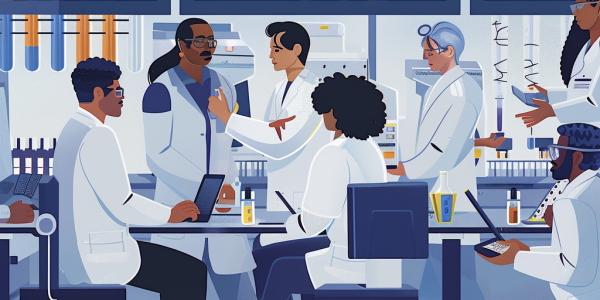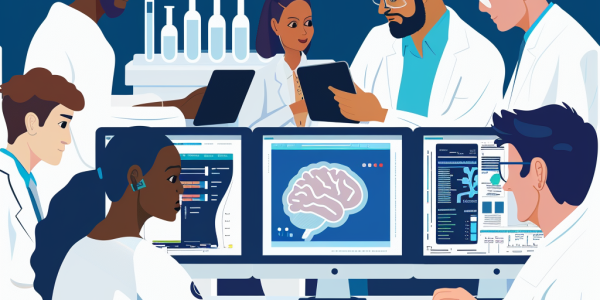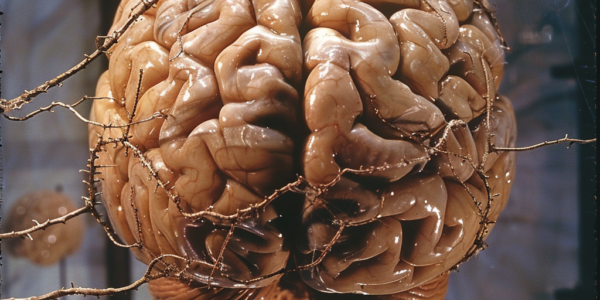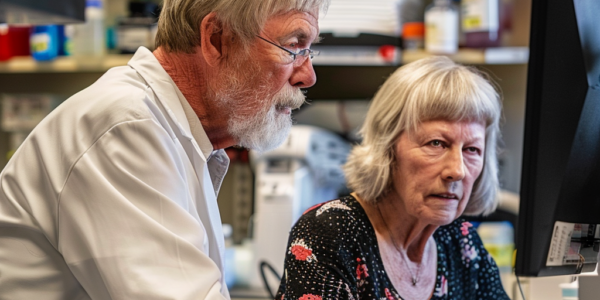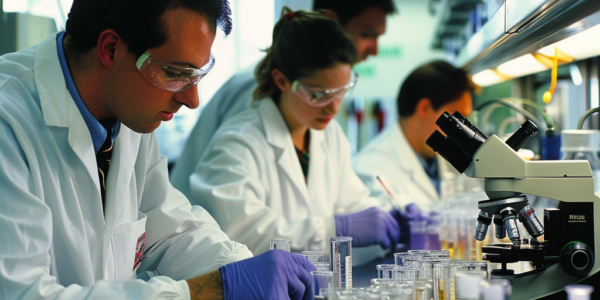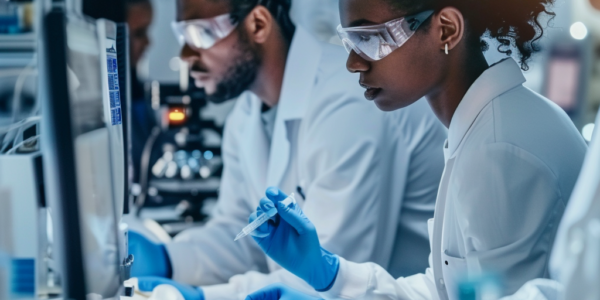Genetic Basis of PTSD Uncovered in Groundbreaking Study
A recent study published in Nature Genetics has identified 95 risk loci associated with PTSD, 80 of which were previously unknown. By pinpointing potential causal genes related to various biological processes, this research enhances our understanding of the neurobiological mechanisms underlying PTSD and opens up opportunities for targeted interventions and personalized treatment strategies.
Yale Researchers Uncover Genetic Landscape of Neuroendocrine Tumors of the Cervix
Researchers from Yale School of Medicine have made significant strides in understanding the genetic landscape of neuroendocrine tumors of the cervix (NETc) to potentially improve treatments for this rare and aggressive disease. The study, published in the Proceedings of the National Academy of Sciences, unveiled novel genes and pathways that could pave the way for precision medicine approaches in treating NETc patients. Dr. Alessandro Santin emphasized the importance of genetic data in guiding the development of innovative therapies, suggesting a combination of common chemotherapy regimens with immunotherapies for a more effective treatment strategy.
Genetic Breakthrough in Tobacco Addiction Research
Discover the groundbreaking research uncovering 461 candidate risk genes for tobacco use disorder, shedding light on the genetic components underlying addiction. With the use of AI technology and genome-wide association studies, researchers identified new genes and potential drug candidates for treatment. This study, involving nearly 900,000 individuals, highlights the significant genetic influence on tobacco addiction and the potential for new avenues of treatment.
Rare Genetic Variants Linked to Left-Handedness, Study Finds
Discover the groundbreaking genetic study that unveils rare genetic variants of the TUBB4B gene as more prevalent in left-handed individuals. This research sheds light on the biological factors influencing handedness and offers valuable insights into the genetic underpinnings of this phenomenon.
Clemson University Researchers Shed Light on Personalized Medicine
Clemson University researchers Trudy Mackay and Robert Anholt have published a review paper on pleiotropy and epistasis, shedding light on the complex aspects of human genetic traits. Their aim is to provide a comprehensive framework for the development of precision medicine, highlighting the prevalence of pleiotropy in model organisms and the often overlooked non-additive gene-gene interactions of epistasis. By addressing the limitations of previous medical studies, the researchers hope to pave the way for new approaches in personalized medicine.
Discovery: Aldehydes Linked to DNA Damage and Premature Aging
A team of researchers at Nagoya University in Japan has discovered the impact of aldehydes on DNA damage and aging. Their findings shed light on the association between aldehydes and premature aging diseases, as well as potential strategies to mitigate aging in healthy individuals. The study revealed that aldehydes, metabolic byproducts, are linked to premature aging, emphasizing the importance of controlling exposure to aldehyde-inducing substances such as alcohol, pollution, and smoke. The researchers highlighted the relationship between aldehyde-derived DNA damage and premature aging, emphasizing the significance of ALDH2 in converting aldehydes into non-toxic substances. The study utilized a method called DPC-seq to investigate the link between aldehyde accumulation and DNA damage in premature-aging disease patients, identifying key processes involved in the removal of formaldehyde-induced DPCs. Professor Ogi expressed optimism about the implications of their findings, emphasizing the potential for developing strategies to combat premature aging diseases and mitigate aging in healthy individuals.
Newly Found Genetic Variant Defends Against Alzheimer’s Disease
Columbia researchers have discovered a genetic variant that reduces the odds of developing Alzheimer’s disease by up to 70% and may be protecting thousands of people in the United States from the disease. The discovery of the protective variant supports emerging evidence that the brain’s blood vessels play a large role in Alzheimer’s disease and could herald a new direction in therapeutic development.
New Method to Map Tissue-Specific Enhancer-Gene Interactions
A groundbreaking study published in Nature Genetics introduces a new method to map tissue-specific enhancer-gene interactions from multimodal single-cell data, potentially leading to the identification of causal disease alleles. The study, led by Saori Sakaue and a team of researchers, addresses the challenge of translating genome-wide association study (GWAS) loci into causal variants and genes by creating accurate cell-type-specific enhancer-gene maps from disease-relevant tissues. The new nonparametric statistical method, known as SCENT (single-cell enhancer target gene mapping), successfully created 23 cell-type-specific enhancer-gene maps and identified likely causal genes for various diseases, demonstrating the potential of SCENT in uncovering disease mechanisms.
CRISPR Technology: Revolutionizing Medicine and Healthcare
The approval of the world’s first CRISPR therapy to treat sickle cell disease and beta-thalassemia patients signifies a significant milestone in the field of gene editing. CRISPR technology has potential applications in targeting and treating various types of cancer, combating AIDS, addressing cystic fibrosis, muscular dystrophy, Huntington’s disease, blood disorders, and even COVID-19. As CRISPR technology continues to advance, its potential applications in medicine and healthcare are expanding, offering new avenues for personalized medicine.
UC Irvine Develops First Genetic Reference Maps for Short DNA Repeats Linked to Over 50 Fatal Human Diseases
University of California, Irvine has developed genetic reference maps for short DNA repeats linked to over 50 fatal human diseases, such as amyotrophic lateral sclerosis, Huntington’s disease, and various cancers. The UC Irvine Tandem Genome Aggregation Database provides a platform for researchers to explore the connection between these mutations and diseases, ultimately enhancing clinical diagnostics and understanding health disparities.

